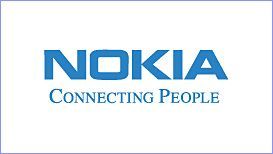A Losing Battle
Sunday, July 02, 2006
 The Register examines the reasons and implications of Nokia's withdrawal from the CDMA handset business. It goes back in time and points out Nokia's big mistake when it decided to go with its own silicon. That move backfired on them and the results can be seen now. It ended up souring its relationship with Qualcomm and Nokia (along with TI and STMicro) could not match the price point of QC chips. Nokia had also bet upon the EVDV protocol as an evolutionary path to CDMA2000 and QC effectively buried it with its own EVDO roadmap.
The Register examines the reasons and implications of Nokia's withdrawal from the CDMA handset business. It goes back in time and points out Nokia's big mistake when it decided to go with its own silicon. That move backfired on them and the results can be seen now. It ended up souring its relationship with Qualcomm and Nokia (along with TI and STMicro) could not match the price point of QC chips. Nokia had also bet upon the EVDV protocol as an evolutionary path to CDMA2000 and QC effectively buried it with its own EVDO roadmap.QC's much debated stand on royalties is also examined. It started with the Korean telecom's, who were the first operators outside of US to embrace the CDMA technology, complained about the high amount of royalties (~ 3 Billon USD) it paid over the a decade. It also contributed to Telstra's, Reliance's and Vivo's move away from CDMA. Although the bigger factor there was the success of GSM in the emerging economies because of the price advantage.
MoCo News rightly points out that the battle is of high stakes here. It will end up shaping the future of mobile industry as whole. And its not over by any means. Nokia may have raised questions about the business case of CDMA but QC is working hard to promote its own version on OFDM. A lot will depend upon Sprint's decision on the technology choice for its 2.5 GHz spectrum. Sprint used to be one of the biggest backers of EVDV but QC was able to persuade them to move away from it. Reportedly they invited Sprint and showcased their own vision of EVDO Rev A which was way superior to EVDV. Sprint was easily won over. It will not be as easy this time around.
QC in the meanwhile is fighting several other battles. There has been a change at the helm and Paul Jacobbs has stepped in at a tumultous time. A full EU investigation (ala Microsoft) against its monopolistic business practices is likely. IEEE has suspended the working group of Mobile-Fi because of allegations of bribery by QC. Its fighting a trenched battle against Intel's WiMAX standard which aims to rival QC's dominance of CDMA technology. There are rumblings about QC contemplating a breakup of its operations!
But times have changed. Nobody anymore wants a propreitary standard like IS-95. The trend nowadays is of Open Standards in which the essential technologies are patent free. The dynamics are much different now with many more players in the field than the IS-95 days. Maybe QC is fighting a losing battle here.
Previous Posts: Nokia Pulls The Plug. The 802.20 Soup. Battle Lines. Emergence of QualSoft.
Tags: Nokia QC CDMA OFDM WiMAX Intel


